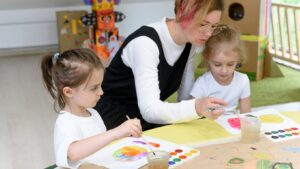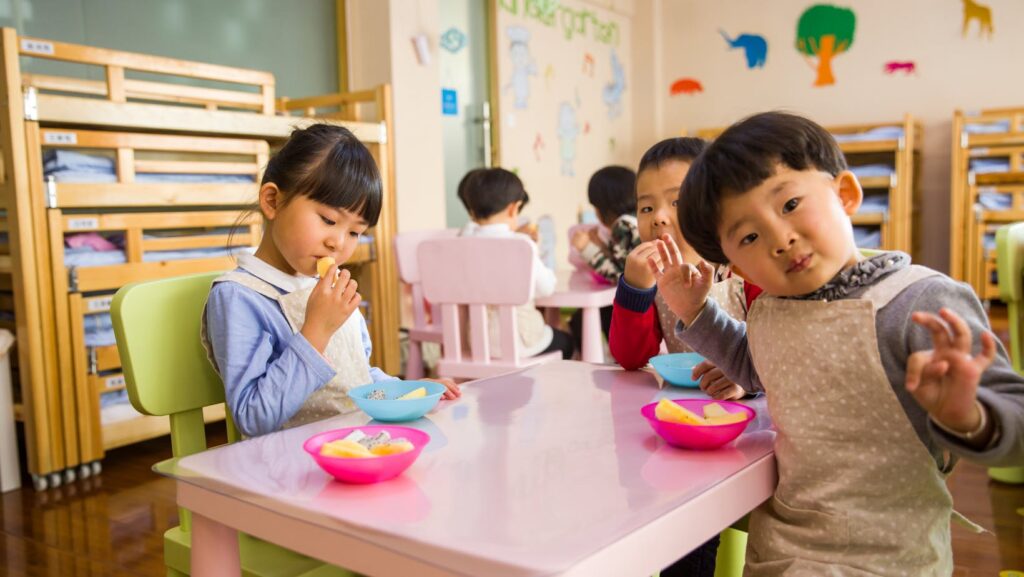In today’s digital age, finding the right educational tools for young learners is crucial. When it comes to kindergartners, engaging and interactive apps can play a significant role in their early education. These top educational apps are not only fun but also designed to enhance essential skills like literacy, numeracy, and critical thinking in young children.
Assessing the Value of Educational Apps for Young Learners

When evaluating top educational apps for kindergartners, several key features should be prioritized to ensure a valuable learning experience. Firstly, the app should have a user-friendly interface that is easy for young children to navigate independently. This feature enhances engagement and allows them to explore the app without constant adult guidance.
Secondly, interactive elements play a crucial role in maintaining a child’s interest and facilitating active learning. Kindergarten apps with interactive activities, such as games that require tapping, dragging, or voice commands, can help develop motor skills while keeping children entertained.
Lastly, parental involvement features that allow caregivers to track their child’s progress, set learning goals, and monitor usage are beneficial. These features promote a collaborative approach to learning and enable parents to support their child’s educational development.
The Impact of Interactive Learning

Interactive learning experiences offered by educational apps for kindergartners can significantly impact a child’s cognitive development. By actively engaging with educational content through interactive games, quizzes, and puzzles, children can improve their problem-solving skills, critical thinking abilities, and creativity.
Furthermore, interactive learning fosters a sense of curiosity and exploration, encouraging children to actively participate in the learning process. This hands-on approach not only enhances retention of information but also makes learning enjoyable and memorable for young learners.
Research indicates that interactive learning environments promote better knowledge retention compared to traditional passive learning methods. By allowing children to interact with educational material in a meaningful way, kindergarten apps create dynamic and engaging learning experiences that cater to diverse learning styles.
top educational apps for kindergartners that offer interactive learning opportunities not only enhance academic skills but also instill a love for learning in young children, shaping their educational journey positively.
Top Educational Apps For Kindergartners
ABCmouse: Building Foundations in Reading and Math

ABCmouse is a top educational app for kindergartners that focuses on building strong foundations in reading and math. It offers a wide range of interactive activities and lessons designed to engage young learners and enhance their literacy and numeracy skills. With its user-friendly interface and engaging content, ABCmouse provides a fun and educational learning experience for children.
Endless Alphabet: Enhancing Vocabulary Through Play
Endless Alphabet is another excellent choice for kindergartners to enhance their vocabulary through play. This app uses interactive puzzles and games to teach children new words and help them learn spelling in a playful way. By combining fun animations with educational content, Endless Alphabet makes learning engaging and enjoyable for young learners.
Khan Academy Kids: A Wide Range of Curriculum-Aligned Resources
Khan Academy Kids is a comprehensive educational app that offers a wide range of curriculum-aligned resources for kindergartners. From math and reading to social-emotional development, this app covers various skills essential for young learners. With interactive activities and personalized learning experiences, Khan Academy Kids provides a valuable educational tool for parents and teachers alike.
Educational apps for kindergartners play a vital role in enhancing literacy, numeracy, and critical thinking skills in young learners. By carefully selecting apps that combine entertainment with education, children can enjoy interactive experiences that promote cognitive development. Balancing screen time with traditional learning is essential, with a recommended maximum of 1 hour per day for children aged 3-5. Integrating educational apps into daily learning routines can deepen understanding and enrich the overall learning process. Parents and educators are encouraged to establish a structured schedule for app-based learning activities, ensuring active participation and engagement to maximize the educational benefits for children.



